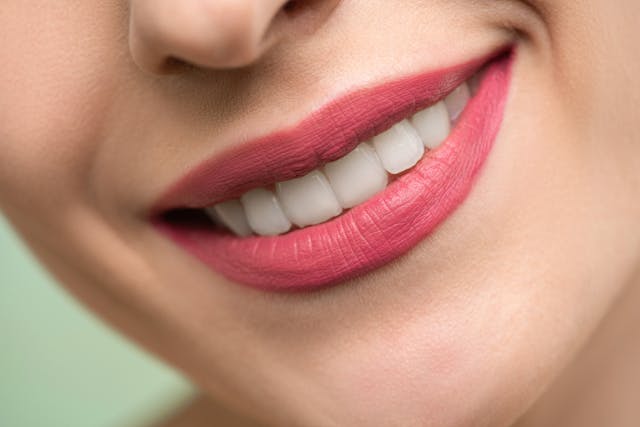
Tips for brightening brown
Are you self-conscious about brown stains on your teeth? About the health of your teeth? Discoloration can affect your confidence, but the good news is there are plenty of ways to restore your bright smile. Whether caused by poor dental hygiene, diet, or lifestyle habits, brown teeth can be whitened with the right methods. This article will explore various ways to whiten brown teeth, including natural remedies, professional treatments, and daily care tips to maintain long-lasting results.
Understanding the Causes of Brown Teeth
Before diving into how to whiten brown teeth, it’s crucial to understand why they discolor in the first place. Common causes include:
Poor Oral Hygiene
Inadequate brushing or flossing allows plaque to build up on your teeth. Over time, this can lead to tartar, which is yellowish-brown in appearance.
Food and Beverages
Coffee, tea, red wine, and dark berries can stain teeth. The tannins in these drinks and foods adhere to tooth enamel, causing discoloration.
Smoking and Tobacco Use
Nicotine and tar from tobacco products are notorious for staining teeth brown.
Fluorosis
Excessive fluoride exposure during tooth development can lead to brown spots on the enamel, a condition known as dental fluorosis.
Professional Teeth Whitening Options
For those seeking quick and noticeable results, professional treatments are often the best route. These options are conducted by dental professionals and may include:
In-Office Teeth Whitening
In-office whitening treatments involve applying a high-concentration bleaching agent to your teeth, often activated by light or laser. This method can make your teeth several shades lighter in just one appointment. The process is fast, effective, and safe, as it’s conducted under the supervision of a dentist.
Take-Home Whitening Kits
Many dentists offer professional-grade take-home kits with custom-fitted trays. These kits include a lower concentration of bleaching agents than in-office treatments but are stronger than over-the-counter options. They provide gradual whitening over a few weeks.
Dental Veneers
If your teeth are severely stained and resistant to whitening treatments, dental veneers may be a solution. Veneers are thin porcelain or composite shells bonded to the front of your teeth to cover discoloration. While more invasive, veneers offer a long-lasting solution to brown teeth.
Over-the-Counter Whitening Solutions
For a more affordable approach, over-the-counter (OTC) teeth whitening products can be effective in mild to moderate cases of brown stains. However, these treatments require more time and consistency compared to professional options.
Whitening Toothpaste
Whitening toothpaste contains mild abrasives and chemicals designed to remove surface stains. While they won’t drastically change the color of your teeth, they can help prevent new stains and maintain results after professional treatments.
Whitening Strips
Whitening strips are coated with a thin layer of hydrogen peroxide or other bleaching agents. You apply the strips directly to your teeth for a specified period, typically 20-30 minutes, twice a day for 1-2 weeks.
Whitening Gels and Pens
These gels are applied directly to the teeth using a small brush or pen. Like strips, they contain hydrogen peroxide and work to bleach teeth over time.
Natural Remedies for Whitening Teeth
If you prefer a more natural approach to teeth whitening, there are several home remedies you can try. While these methods may not be as fast or effective as professional treatments, they can help with mild discoloration.
Baking Soda and Hydrogen Peroxide
Mixing a small amount of baking soda with hydrogen peroxide creates a paste that can help remove stains. Baking soda acts as a mild abrasive, while hydrogen peroxide is a bleaching agent. Use this mixture no more than once a week to avoid damaging your enamel.
Coconut Oil Pulling
Swishing coconut oil in your mouth for 10-15 minutes daily can help reduce plaque buildup and surface stains. While the effects are mild, oil pulling is a safe and natural way to improve oral health.
Apple Cider Vinegar
Apple cider vinegar can be used as a mouthwash to help remove stains. However, it is acidic, so it’s essential to dilute it with water and use it sparingly to prevent enamel erosion.
Tips for Maintaining Whiter Teeth
Once you’ve whitened your teeth, it’s important to maintain the results. Here are some daily habits that can help:
Brush and Floss Regularly
Brush your teeth at least twice a day using a fluoride toothpaste, and don’t forget to floss daily.
Avoid Staining Foods and Beverages
Cut back on coffee, tea, red wine, and foods that stain your teeth. If you do indulge, rinse your mouth with water afterward.
Quit Smoking
Not only is smoking bad for your overall health, but it’s one of the biggest culprits of tooth discoloration.
Visit Your Dentist Regularly
Regular cleanings and check-ups will help keep your teeth free from plaque and tartar buildup, which can lead to staining.
To sum up
Whitening brown teeth is achievable with the right approach. Whether you opt for professional treatments, over-the-counter products, or natural remedies, consistency is key. By combining these methods with good oral hygiene habits, you can achieve and maintain a whiter, brighter smile.







